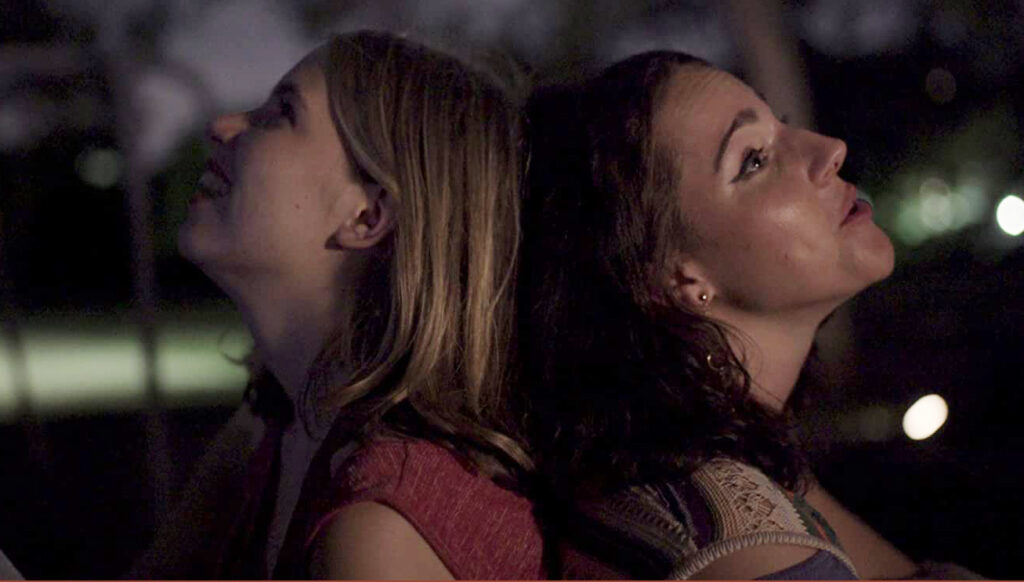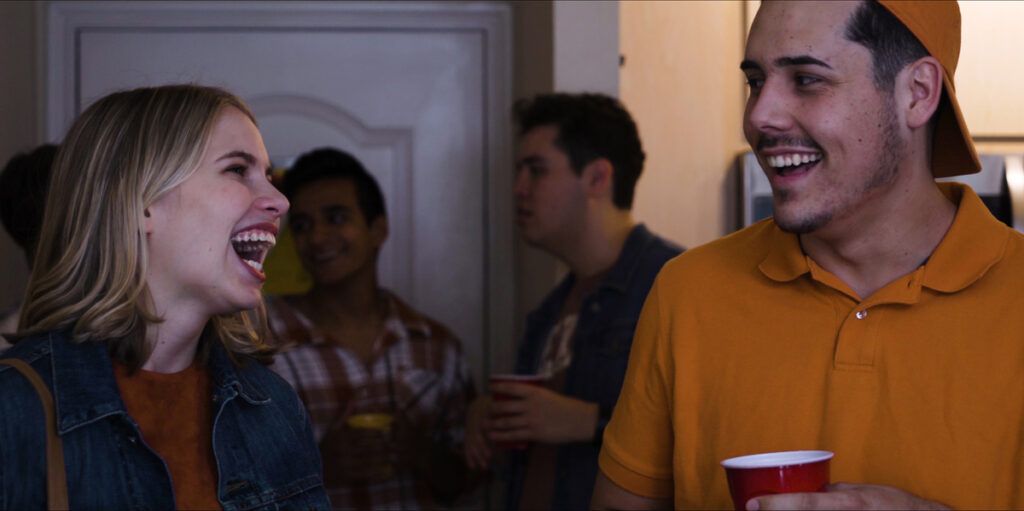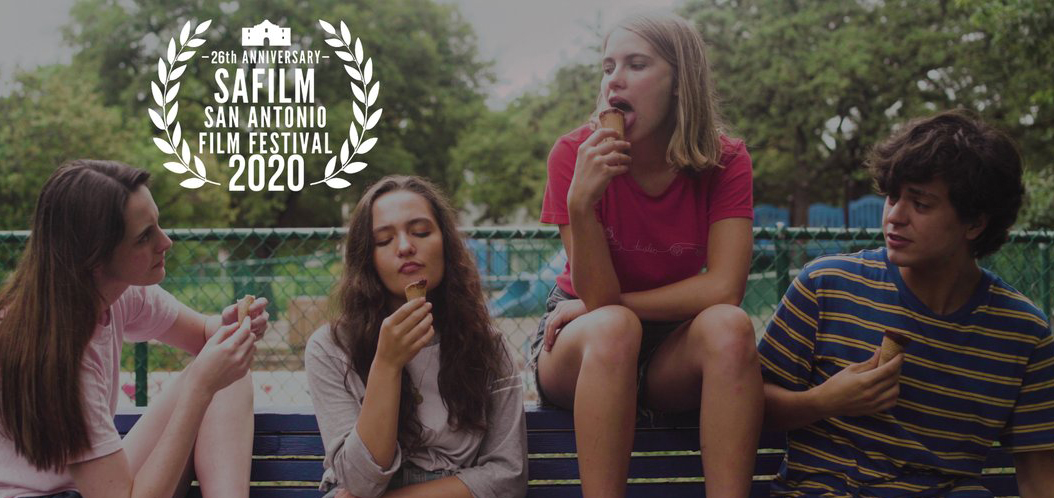I saw Dear Leo in 2020 at an online film festival. This review has been sitting in my drafts, waiting for the movie to get a wider release. At this point, I don’t think that’s going to happen. So, this review is sort of pointless. It’s unlikely you’d have a chance to decide whether or not to watch the film any time soon. That’s a shame. A lot of passion went into this project. Before the screening started, the film’s creators introduced the film and expressed their desire to make a coming of age film that they felt represented by as queer women. This is a deeply respectable goal, even if the execution wasn’t great. Much as this is a negative review, Dear Leo deserves some sort of release. Maybe on a free with ads streaming platform?
The lead character in Dear Leo is Annie. We follow Annie during her summer after graduating from high school into her first year of college. The film is framed as letters that Annie and her younger cousin Leo send each other. Leo talks about his worries about starting high school and early teen romances. Annie talks about her fears of going away to college and disappointments when she attends. She also shares about her bisexuality and complicated relationships with her friends Hayden, Scottie and Connor. Connor and Annie dated and broke up. Additionally, Annie and Hayden go from friends to something more. But Annie’s more invested in the relationship than Hayden. Her only constant is the platonic relationship she has with Scottie, who’s also the best character in the film.

The best part about Dear Leo is the directing and cinematography. This is a decent movie to look at. The film is well colour-corrected, has decent angles and generally uses some solid directorial know-how to cover up the film’s lack of budget. I do applaud this. However, this isn’t a case like Supernova where the visuals themselves are good enough to make me enjoy the film. Competently shot though it is, it can’t distract from other issues such as iffy sound and a script that is at best, meh.
I think Dear Leo was trying hard to go for realism but unfortunately, it veers off into banal. Especially in the dialogue. There’s a great deal of filler lines; characters doing small talk and really just saying filler. This is totally realistic; not everything I say to my friends is a sparkling gem of insight or wit. But it’s not great for a film. Dialogue should move the story or characterization forward or at least be interesting. A lot of the dialogue in Dear Leo did none of that. It just sits there.

This isn’t helped by the fact that there’s a universally flat affectation for all of the characters. Major moments of emotional upheaval happen to various characters but they never really go above a 6/10 on the drama scale. There’s even flashes in the movie where we see what Annie and her anxiety imagines the world is like. Even these scenes aren’t nearly over the top enough. Maybe the lines are a bit strange but the delivery of the lines remains pretty flat.
Sadly, the flatness of the dialogue and affectation is nowhere more apparent than in the lead character. A big problem with Dear Leo is I didn’t enjoy spending time with this protagonist. She’s not the most interesting nor sympathetic character. Annie seems emotionally disconnected from everyone and most major events. The way the film portrays her awkwardness is a problem. Annie’s version of social awkwardness is basically an inability to keep a conversation going. In a film that’s driven by dialogue, that’s a problem. As a character, Annie is antithesis of that age old rule of improve, respond to previous statements by saying “yes, and.” Annie says no and refuses to expand on her point.

The pacing of Dear Leo feels wonky. The first act could be a whole movie, the second act has very little memorable things and the third act revelation comes at an awkward time. After said revelation, the movie still limps on for another 20 minutes. Maybe this issue is that nothing in the movie feels permanent or important. The group of friends Annie starts with clearly aren’t lifelong friends. They’re distant by the end of the movie. Her college experiences are also unmemorable. Even the death she experiences in the third act which is undoubtedly sad doesn’t feel like a major life turning point. Her realization after this death is to basically keep doing what she was doing anyway.
Dear Leo has potential, especially from director Emma Rappold. But it doesn’t feel polished. Again, for all of my critique, I do want to see this film get a wider release. This was the first project for much of the cast and crew. While the potential and talent never completely actualizes in this project, it’s a good starting point. This is definitely a strong enough feature for most of the cast and crew to have on their reel or resume and feel pride in as an early project. Again, this isn’t an overall good movie. But when quality stopped a film from being released? There’s lots worse stuff out there right now on streaming services than Dear Leo’s lack of budget, cliche script and earnest passion for representation.
Overall rating: 2.9/10
Other WLW films in similar genres


Be First to Comment